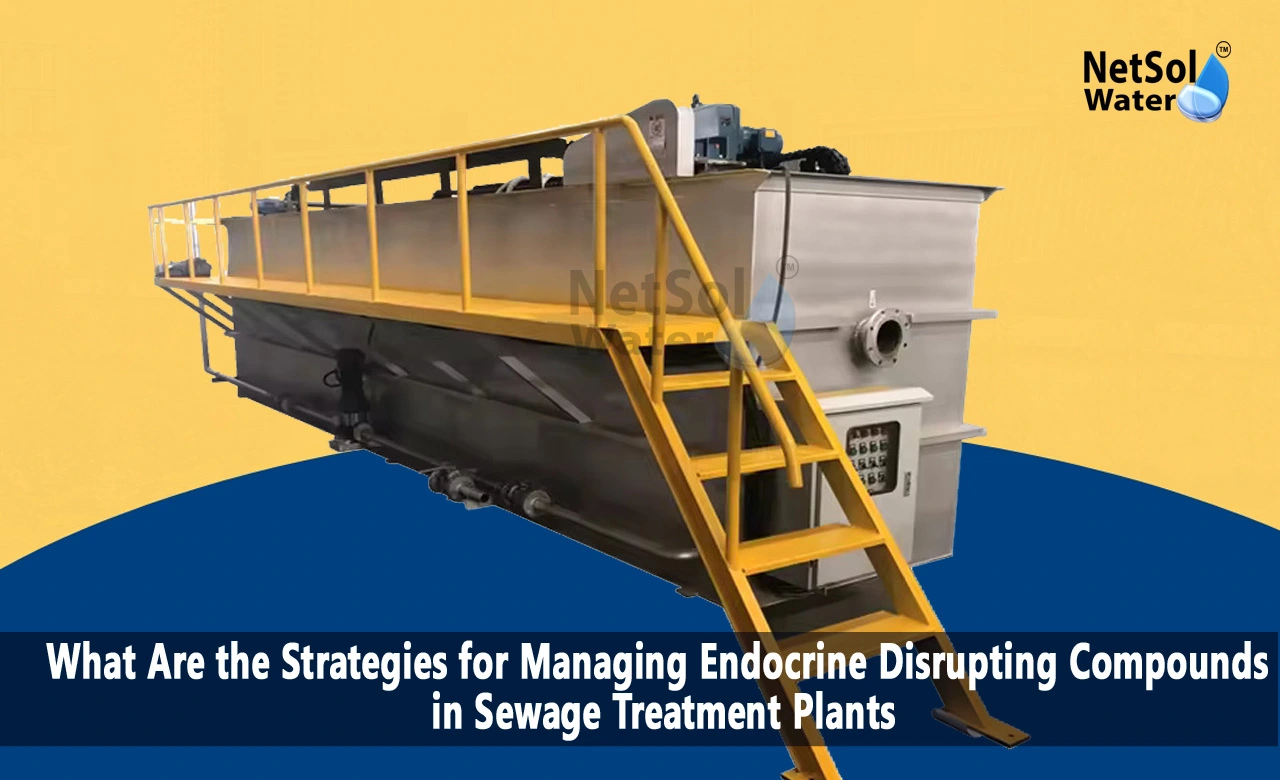What Are the Strategies for Managing EDC in STP Plant?
In recent times, there's been a lot of concern about endocrine-disrupting compounds (EDCs) found in wastewater. These substances, such as phthalates, bisphenol A (BPA), and certain medications, can interfere with our body's hormone balance, leading to various health issues. That's why it's crucial for sewage treatment plants to have effective strategies in place to handle and minimize the impact of these EDCs on both human health and the environment.
Understanding EDCs and Their Risks
EDCs are special chemicals that can cause problems in our bodies by interfering with our hormones, even in small amounts. They come from many sources like factories and the products we use every day. When they get into the water from things like sewage, they can harm animals and, later on, us when we drink the water or eat food from affected areas. It's important to know about these risks so we can find ways to protect ourselves and the environment.
Strategies for Managing EDCs in Sewage Treatment Plants:
Advanced Treatment Technologies:
Using advanced treatment methods like activated carbon adsorption, ozonation, and membrane filtration can significantly improve the removal of EDCs from wastewater. These technologies are highly effective at targeting specific compounds and providing thorough cleaning compared to standard methods.
Optimization of Existing Processes:
By making improvements to the current treatment processes in sewage treatment plants, we can make them better at getting rid of EDCs. This might mean adjusting how things are done, changing the amount of chemicals used, or making biological treatment processes more effective at tackling EDCs.
Source Control Measures:
It's important to take steps to stop EDCs from getting into sewage treatment plants in the first place. This could involve encouraging people to use eco-friendly products, setting up programs to collect unused medicines, or reducing the amount of industrial wastewater that contains EDCs.
Public Education and Outreach:
Teaching people about the dangers of EDCs to both the environment and health can make them more aware and change the way they act. This might involve creating campaigns, hosting events in communities, and spreading the word about why it's important to dispose of waste correctly and pick products that don'tcontain EDCs.
Monitoring and Surveillance:
Checking the levels of EDCs in wastewater and treated water on a regular basis is really important. It helps us see if our treatment methods are doing a good job and if there are any new issues popping up. Monitoring helps sewage treatment plants know where they need to make changes to get better and keeps track of how things are going over time.
Collaboration and Partnerships:
Working together with sewage treatment plants, government agencies, researchers, and other groups is key to coming up with effective plans for dealing with EDCs. By sharing knowledge, resources, and ideas, we can tackle the challenges posed by EDCs more effectively.
Choosing the Right Strategy
Choosing the right strategies to manage EDCs in sewage treatment plants depends on several factors, such as which compounds are causing concern, the plant's setup, the quality standards for the treated water, and budget limitations. Often, a mix of strategies is needed to deal with the problem effectively.
It's important to think about the possible downsides of different treatment methods. For instance, while advanced oxidation processes can be helpful, they might create harmful byproducts. Using activated carbon can also be effective, but it might mean dealing with more sludge and finding ways to dispose of it safely. Balancing these factors is key to finding the best approach for managing EDCs while minimizing any negative effects.
Conclusion
Managing endocrine-disrupting compounds (EDCs) in sewage treatment plants is crucial for protecting human health and the environment. Strategies include using advanced treatment technologies, optimizing existing processes, implementing source control measures, conducting public education and outreach, and collaborating with stakeholders. By employing these strategies, sewage treatment plants can effectively mitigate the impact of EDCs and ensure the safety of water resources for future generations.
Do you need an advice or assistance on selecting the best water and waste water treatment unit? We have solutions for all your problems!
Let us now your problem, our experts will make sure that it goes away.
For an assistance or related query,
Call on +91-965-060-8473 Or write us at enquiry@netsolwater.com



